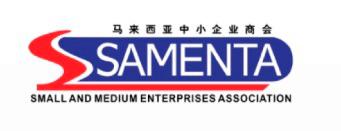PETALING JAYA: The Inland Revenue Board’s (IRB) decision to exempt micro enterprises from e-invoicing and to give small and medium enterprises more time to comply with the mandate is a positive step that will help ease the current difficulties faced by businesses in the country.
The Small and Medium Enterprises Association of Malaysia (Samenta) stated that IRB’s exemptions are not only timely but also reflect an understanding of the real challenges faced by small businesses on the ground.
“We have provided input on both issues, and we are grateful that the government has shown genuine care and support for our most vulnerable enterprises,“ Samenta national president Datuk William Ng said.
“We are especially heartened by the government’s decisive move to permanently exempt businesses earning less than RM500,000 annually from the e-invoicing mandate.
“This exemption spares our smallest traders, hawkers and family-run shops, many operating without digital infrastructure, from compliance burdens that could have forced them to shut down or operate informally,“ he added.
Ng said the postponement of e-invoicing requirements until Jan 1, 2026, for businesses earning below RM5 million a year provides SMEs with much-needed time to prepare, strengthen their skills and adjust to new demands.
This flexibility is essential for SMEs to survive and grow in today’s changing economic environment, he added.
On Thursday, IRB announced that the e-invoicing implementation for taxpayers with annual income or sales between RM1 million and RM5 million is postponed to Jan 1, 2026, while those below RM500,000 are exempted, and the deadline for those up to RM1 million is extended to July 1, 2026.
The board also set a new e-invoicing implementation timeline: Phase 3 for taxpayers with annual income or sales between RM5 million and RM25 million starts on July 1, 2025; Phase 4 for those earning RM1 million to RM5 million begins on Jan 1, 2026; and Phase 5 for taxpayers with income up to RM1 million will commence on July 1, 2026.
On the government’s decision to postpone the permit requirement for the use of subsidised liquefied petroleum gas, Ng said: “In response to the concerns of our street-level food operators, the temporary waiver of liquefied petroleum gas permit requirements will go a long way in safeguarding the daily livelihoods of thousands of families and small traders. It may be a small administrative change, but it carries significant implications for business continuity and the cost of living.”
Without these timely measures, he said, Malaysia could have faced the potential collapse of thousands of small businesses, particularly those in the micro and informal sectors.
Ng pointed out that the government’s proactive stance has averted what could have become a national micro-business crisis.
“More importantly, these decisions send a clear message that the government sees SMEs as a central pillar of our economy and is responsive and willing to amend policies based on feedback from the ground,“ he said, adding that Malaysia is a country where small businesses are treated with respect and understanding.









